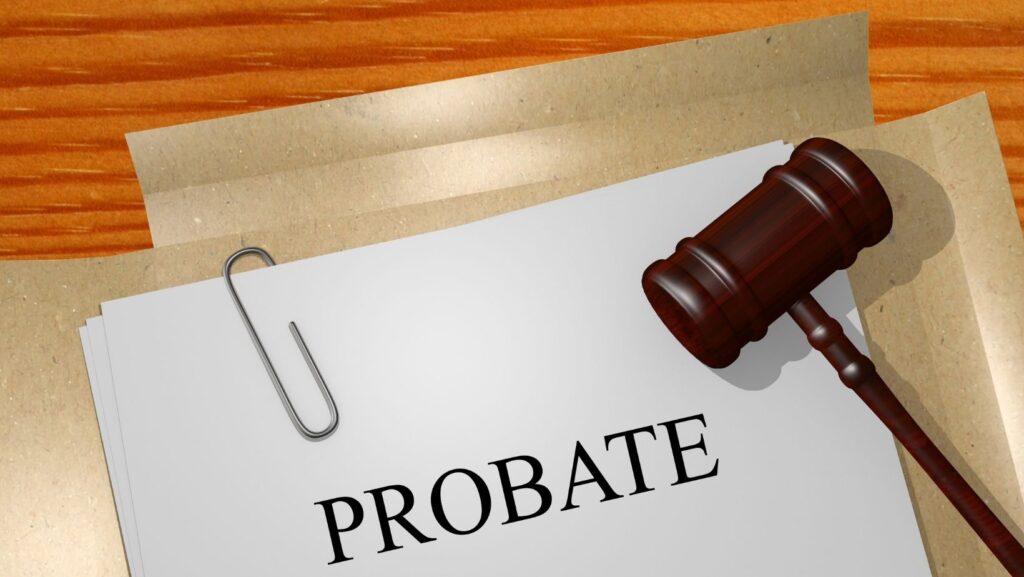
Probate can be a time-consuming and perplexing process. However, probate isn’t necessary for several states if the estate’s value is less than a specific amount. For minor estates or when all property is given to a surviving spouse, certain states have a shortened probate procedure. Learn more about what to expect while dealing with probate in Fort Worth in this article. You may also learn more about the Probate Process in our earlier post.
You probably have a lot on your plate if you’re dealing with a probate property. Dealing with the loss of a loved one is difficult enough, but settling their estate, dealing with their debts, and managing personal property is a huge task. There are distinct rules in each state governing the probate process. We’ll give you a rough concept of what to expect during the probate process in Dallas Fort Worth in the sections below.
Will Validation During Probate
The probate court would have to determine if the will is valid before carrying out the probate process. The probate process will take place at the location where the decedent lived or owned property.
To be a legally binding document, a will must meet three basic requirements:
- The will must be in writing. There must be a written document to prove the will.
- The person who wrote the will should sign and date it. It is legal for the will-maker to have directed someone else to sign the document in front of witnesses if the will-maker wasn’t physically able to do so. The will-maker should also have signed or initialed each page of the paper, though this is not essential.
- Two adult witnesses should sign the will. Witnesses are very important. They witness the will-maker sign the paper and then sign it themselves and noting that the will-maker looks to be mentally competent and not influenced unduly by anyone. Witnesses must be legal adults in every state. The witnesses must also understand that the document is going to be the person’s will.
Executor Of The Estate
Typically, the deceased would name an executor of their estate who will be in control of their assets. In most states, an executor must be at least 18 years old and is a resident of the state where the will is submitted to probate court. The probate court must first approve the executor before he can carry out their duties. The obligations of the will executor can vary depending on the complexity of the estate and the person’s preferences. Executors are in charge to oversee and ensure anything specified in the will. They’ll have work to do even before the will is presented to the court. In some cases, the court will appoint one if the will does not indicate anyone as an executor. Typically, the executor will be the deceased’s spouse or child. You can learn more about the role of an Executor of an Estate in this previous blog we posted.
Gathering of Assets
The executor of the estate must gather and identify all of the deceased’s assets. It is necessary to cover both tangible and intangible items. The executor must disclose valuables such as collectibles, bank accounts, bonds, and real estate. In some instances, an executor calls in an appraiser to determine the “date of death” valuations of the assets left behind. A list of all assets, their values, and how these values were calculated will be required by the court. The court will require a list of all assets and their values.
Notifying Creditors
The creditors of a deceased person must be notified after their death. The creditors will then have the opportunity to file claims against the estate if needed. In most states, the executor must post a notice of death. This is to inform any previously unaware creditors of the decedent’s death. Creditors will only have a little time to file a claim against the estate.
Paying Debts During Probate
The executor of the state must pay any unlawful debts left behind by the deceased. This covers any creditors who have filed a claim as well as any costs associated with the final agreement. There may be medical bills and other outstanding matters to settle before transferring any assets.
Handling Tax Returns
The executor of the estate is responsible for filing the deceased’s personal tax returns for the year in which they died. They will also be responsible for paying any estate taxes payable within nine months of the deceased’s death. In some situations, assets from the estate need to be liquidated to pay these taxes. Doing so will lower the value of the assets transferred to the heirs.
Asset Distribution
Once all heirs are notified, assets have been accounted for, creditors have been notified, and debts have been paid, the executor can distribute the remaining assets in accordance with the deceased’s will and after the court has given its approval. If any of the beneficiaries are minors, the executor will need to set up trust until the minor is of legal age to own the property on their own.
Summary of What a Probate is
Managing the probate process can be time-consuming, costly, and unpleasant. Avoiding probate by selling or giving away your assets ensures that fewer items are subject to the process.
Just call or text us today at (817) 550-5069 Opt#3 or contact us now for more information on how we can make you a fair all-cash no obligation offer on your inherited house today, with NO obligation so what do you have to lose.
If we can’t help you, we probably know someone that can, so give us a call today.
We’d love to stay in touch… Follow us on Facebook, Twitter, Instagram, and YouTube for free real estate education and some great stories and tips.
TMC Property Solutions is a Veteran owned business and has been helping families across the DFW Metroplex for 20+ years, “Sell Your House Fast“, and providing solutions that work. We are an accredited business, and A+ rated member of the Fort Worth BBB. You may also Google TMC Property Solutions to see what others have to say about us and our services.
Be sure to reach out to our office if you have any questions on anything or to schedule an appointment HERE.
Maybe you are not ready to sell your inherited property today, but wouldn’t it be nice to understand your options for when you are ready? Simply fill out our short form here and we will put together your no-obligation options for when you are ready.
20+ years providing solutions for selling your house fast!

